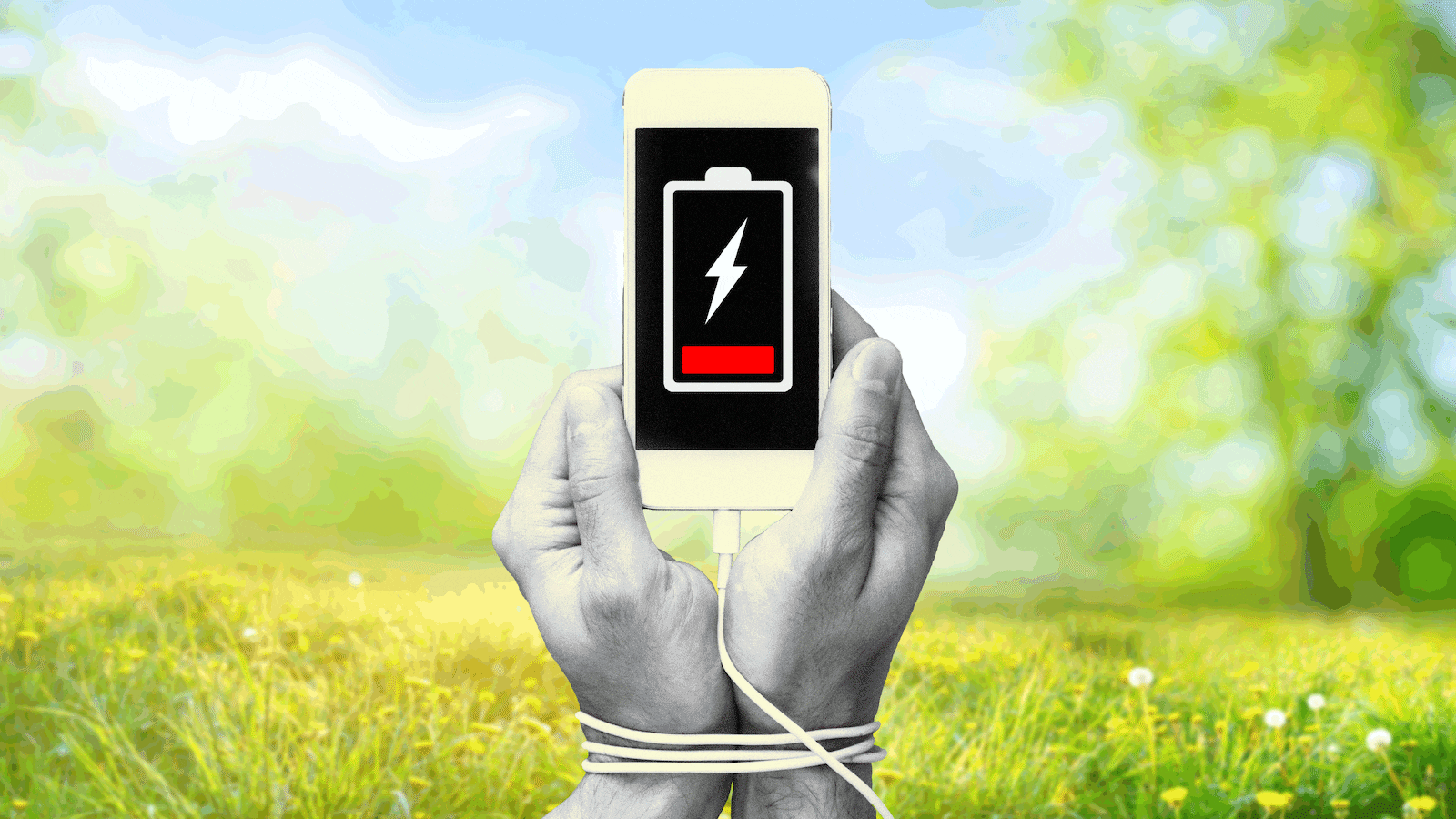Our smartphones have become our lifelines to the world, but they can also be our greatest burden. We feel beholden to news, information, and live texts from our loved ones and we don’t know how to let go of these tethers.
But for a growing number of people, the only way to free themselves from those obligations is to let their phones die—deliberately.
Several people told The Daily Beast that they intentionally refrain from plugging in their iPhones to charge when it’s in the red battery zone, hoping it will drain completely, and momentarily rid themselves of their duties and connection to people and the internet.
“This week alone, I’ve let it die twice,” said 31-year-old Los Angeles-based Nikki Dunlap, who started the practice earlier this year, and habitually lets her phone die about two to four times a week. “I do it because I feel like there’s a handcuff around my wrist connected to my phone. I get overstimulated and overwhelmed knowing that people have texted me or called me, and they’re waiting for me to respond. I feel obligated to reply as soon as I get the notification.”
Dunlap said she was so shackled to her phone that she’d have it on her at all times, in her own home, and often wind up getting lost in it for 30 minutes at a time, distracting her from her other duties. “I also just want to be able to think clearly and be unreachable sometimes,” she said. “Since doing all of this, I’ve just been way more productive. I don’t feel anxious 24/7. I have a long way to go but progress is a process.”
Raghda Abdulrahman, a 24-year-old based in Bahrain, told The Daily Beast she started the habit a year ago after wrestling with similar issues.
“I don’t usually let it die unless I’m home and anything urgent or family-related can get to me through family members,” she said. “Or if it’s work-related I keep my email open on my laptop. The main purpose is just getting away from social media.”
Others have opted for less drastic measures: instead of disconnecting entirely, they have experimented with keeping their phones silenced (or on “DND” mode) for the majority of the day. It often helps with anxious feelings or thoughts that come up when someone important texts them—or, more tragically, when someone doesn’t text.
“I can get overwhelmed with emotions, and embarrassing to admit, it is especially present especially when I am interested in someone romantically,” 21-year-old Kaylie Clark, who lives in San Diego, told The Daily Beast. “I get really anxious waiting for a response, so putting my phone on DND helps. It prevents me from [looking] for that buzz or notification and helps with overthinking.”
Clark says she doesn’t intentionally let her phone die, but “if it dies I don’t feel an urgency to re-charge it.” San Francisco-based Vanessa Soto, 31, said she frequently lets her phone die in her hand, a practice she recalled started during the pandemic, when her phone was her lifeline and she had the luxury of always having it charged at home.
“Once I could theoretically always charge my phone, it seemed a lot less important that it ever actually charge,” Soto told The Daily Beast. “The first few weekend trips my partner and I took after the pandemic, we'd sometimes be hours into the drive before I'd realize I hadn't packed a phone charger at all.”
Reset
She and others all reported feeling an immediate weight lifting from their shoulders when they are disconnected from alerts going off their phones. “I just feel peace when my phone is dead,” she said. “It’s much easier for me to fall asleep if I don’t use my phone after 8 p.m.,” 32-year-old Christo Briceño, who’s also based in San Diego, told The Daily Beast. “DND after 8 p.m. has also helped me ‘shut down’ throughout the work week.”
Mental health professionals told The Daily Beast they’ve seen a major uptick in clients who said they’re experiencing more anxieties caused by their phones. Aura De Los Santos, a clinical psychologist based in New York, listed some of these symptoms she’s been noticing: “People with a strong concern about their phones running out of battery; constantly looking at the phone to get a return message; feeling anxious;, not paying attention to their surroundings; looking at their phone every time they receive a notification and feeling an urge to respond quickly; and they may also feel uncomfortable knowing about their own behavior when they are around other people.”
De Los Santos said letting your phone die can be one viable option, but it may also bring on more stressors, which people should be mindful of. “Letting the phone battery die in some cases may be a good practice to avoid being on the lookout, but at the same time if the person is alone and their phone dies there may be an emergency and they may not be able to communicate with another person,” she said.
Instead, she advises people to try keeping their phones physically away from them where they can’t see it, or downloading apps that force them to limit their screen time.
Kelsey Latimer, a psychologist and registered nurse, told The Daily Beast letting one’s phone drain, or placing it on perpetual DND, is a good starting point. But users need to learn how to simply “say ‘no’ to picking up the phone” on their own eventually.
“Many of my clients are shocked to hear that there was a time when cellphones did not exist and to some extent, it was actually easier to connect,” Latimer said. “Having boundaries with the phone and ‘resetting ourselves’ can help us find ways to use the technology in a way that can be helpful for us without having it take over our lives.”








